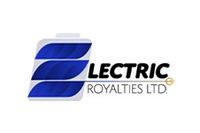Volkswagen Now Seeking Cobalt Supply Deals with Producers
The German automaker is looking to secure cobalt supply deals by the end of the year as it prepares to meet increasing demand for electric cars.
German automaker Volkswagen (FWB:VOW) is looking to secure cobalt supply deals by the end of the year as it prepares to meet increasing demand for electric cars.
Cobalt industry sources told Reuters that Volkswagen, the world’s largest automaker, has asked producers to submit proposals on supplying the material for up to 10 years from 2019. Proposals are due at the end of the month.
The metal is a key element in the lithium-ion batteries used to power electric vehicles, which contain between 8 and 12 kilograms of the metal each. The company is aiming to make up to 3 million electric cars a year by 2025, and has said it will need more than 150 GWh of battery capacity annually.
The news that Volkswagen is on the hunt for cobalt came on Friday (September 22), and Reuters notes that the company has not yet responded to questions about its call for proposals.
“The tender doesn’t actually tell you how much cobalt they want. They tell you how many electric vehicles (EVs) they want to make, you have to work out the cobalt content yourself,” one cobalt industry source told the news agency.
The company said last week that it is seeking new global supplier contracts to source 50 billion euros ($60 billion) worth of electric car content. At the time, Benchmark Mineral Intelligence Managing Director Simon Moores said on Twitter that assuming a $60-billion investment, Volkswagen would be able to generate 600 GWh of lithium-ion battery capacity.
As a result, Volkswagen will need more than 160 kilotonnes of cobalt chemical for its electric vehicle fleet. “[That’s] much more than the entire 96kt market in 2016,” he added.
Worries about future supply continue to increase, as more than 60 percent of cobalt comes from the politically unstable Democratic Republic of Congo, where mining has been associated with child labor.
New supply is forecast to come from Eurasian Resources Group’s Metalkol Roan tailings project, which is seen producing an estimated 14,000 tons a year, and from Katanga Mining (TSX:KAT), which is expected to restart operations later this year. Many smaller cobalt companies are also hoping to bring projects into production to meet demand.
Even so, many analysts agree that cobalt will be in deficit in the next decade, as new supply will not be enough to meet surging demand for batteries in electric cars. In fact, UBS (NYSE:UBS) expects global sales of electric vehicles to reach 14.2 million units in 2025 from under 1 million units this year.
Volkswagen has said that the chemistry for the batteries used in its electric vehicles will initially be six parts nickel, two parts cobalt and two parts manganese, or 6:2:2; however, it could switch at some stage to 8:1:1.
“They want a fixed price, which won’t work for people who need security and they want to reserve the right to not take metal they don’t need,” another cobalt source told Reuters. “They want producers to take all the risks … they want an option at low prices, for long maturities at zero cost.”
Reuters sources also said the wording of the tender suggests it will probably have also gone to lithium producers, chemical producers and battery makers.
Speaking specifically about lithium, another key element in lithium-ion batteries, Joe Lowry of Global Lithium said recently that the problem is that car and battery companies want to negotiate from strength and “tend to be bullies when dealing with their suppliers.”
“They are trying to price shop in a seller’s market. It will take time for them to realize the reality of the lithium market — lithium suppliers are in the driver’s seat,” he added. Click here to read the full interview.
Don’t forget to follow us @INN_Resource for real-time news updates!
Securities Disclosure: I, Priscila Barrera, hold no direct investment interest in any company mentioned in this article.

